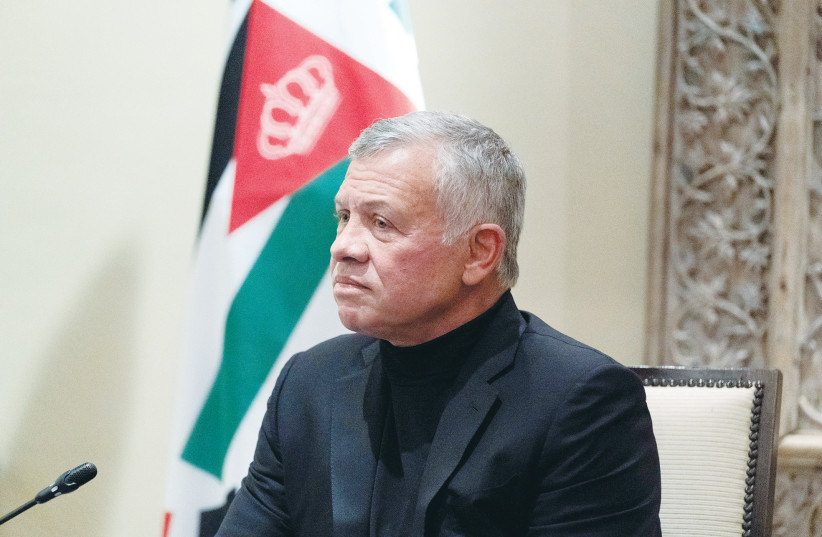Jordan’s leadership faces a complex dilemma due to the ongoing war between Israel and Hamas. The Hashemite kingdom must strike a balance between its public opinion and geopolitical interests, particularly in maintaining its ties with Israel.
For more stories from The Media Line go to themedialine.org
Since its inception in 1994, the Israel-Jordan peace treaty has maintained a mostly quiet border and fostered various collaborative projects. However, the recent Israel-Hamas conflict, initiated by Hamas’s terror attack on Israel on October 7, has prompted public criticism from Jordan’s leadership. Jordan’s actions included recalling its ambassador from Tel Aviv, requesting the Israeli ambassador’s departure until the end of the war, and declining to sign the “Water for Electricity” treaty.
At the same time, former acting director general at the Israeli Ministry of Strategic Affairs, Dr. Shay Har-Zvi, now a senior fellow at the Institute for Policy and Strategy at Reichman University, asserts that barring any dramatic developments, Israeli-Jordanian relations are unlikely to be jeopardized.
“I think there is a difference between constraints and interests,” Har-Zvi told The Media Line. He noted that Jordan's King Abdullah II faces considerable public pressure.
Anti-Israel sentiment in Jordan
“The public [in Jordan] has lots of anti-Israeli sentiments, and they put a lot of pressure on the king to change its attitude toward Israel,” he said.

Nevertheless, Har-Zvi maintains that behind the scenes, “the king of Jordan shares Israel's interest in eliminating Hamas.”
If Hamas survives the conflict, it could indicate the success of the radical axis, led by Iran and supported by Qatar and Russia, comprising Hamas, Hezbollah, and other militias in the region against the US-led camp.
In addition, Har-Zvi maintains that if that is the case, Hamas would try to rebuild Gaza. Given that Mahmoud Abbas, president of the Palestinian Authority, is 88 and lacks robust support, “Hamas could try to take over Judea and Samaria,” he said, adding that if that happens, Jordan or Egypt could be next.
Hazem Al Dmour, General Manager at STRATEGIECS, a Jordanian think tank, elucidated Jordan's rationale in its approach. “Jordan is taking measured steps based on its interests and risks,” he told The Media Line.
In times of crisis, said Al Dmour, “Jordan relies on deliberate policies through which it can convey its messages and positions accurately without exacerbating or widening the crisis.”
In the current war between Israel and Hamas, he continued, “Jordan early on defined what it considers red lines, beyond which acting against Israel could escalate to the threshold of war. Below these red lines, Jordan’s actions have been limited to diplomatic and economic levels,” he said, referring to the actions taken by Jordan thus far.
Crisis must be contained
At this stage, Jordan sees that regional interests require avoiding an expansion of the crisis and acting accordingly, Al Dmour explained.
He also noted that this is not the first time that Israel-Jordan ties have faced challenges, citing some policies of the current Israeli government before the war. “The attempt to implement the former US President Donald Trump’s peace initiative known as the ‘Deal of the Century,’ almost led to a clash between the two parties,” he said.
Furthermore, Al Dmour noted that as allies of the United States, both nations often benefit from America's mediating role in times of crisis.
However, Al Dmour said that the breaking point, as clarified by Jordan officially, revolves around crossing well-known red lines, with the foremost being the displacement of Palestinians from their lands, whether from Gaza to Egyptian Sinai or the West Bank to Jordan.
Har-Zvi agrees that this is an action that could endanger the bilateral ties. However, he asserts that despite certain isolated propositions, the Israeli government is exploring other options.
“I’m quite sure that Prime Minister Netanyahu and this government understand that some things should not be done and I’m quite sure no one is taking seriously those suggestions,” he said.
